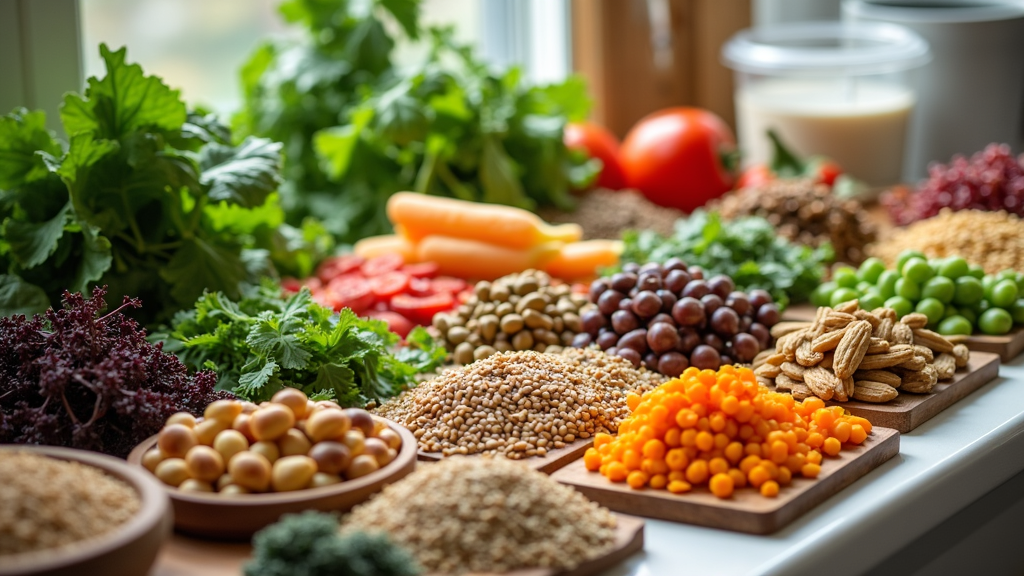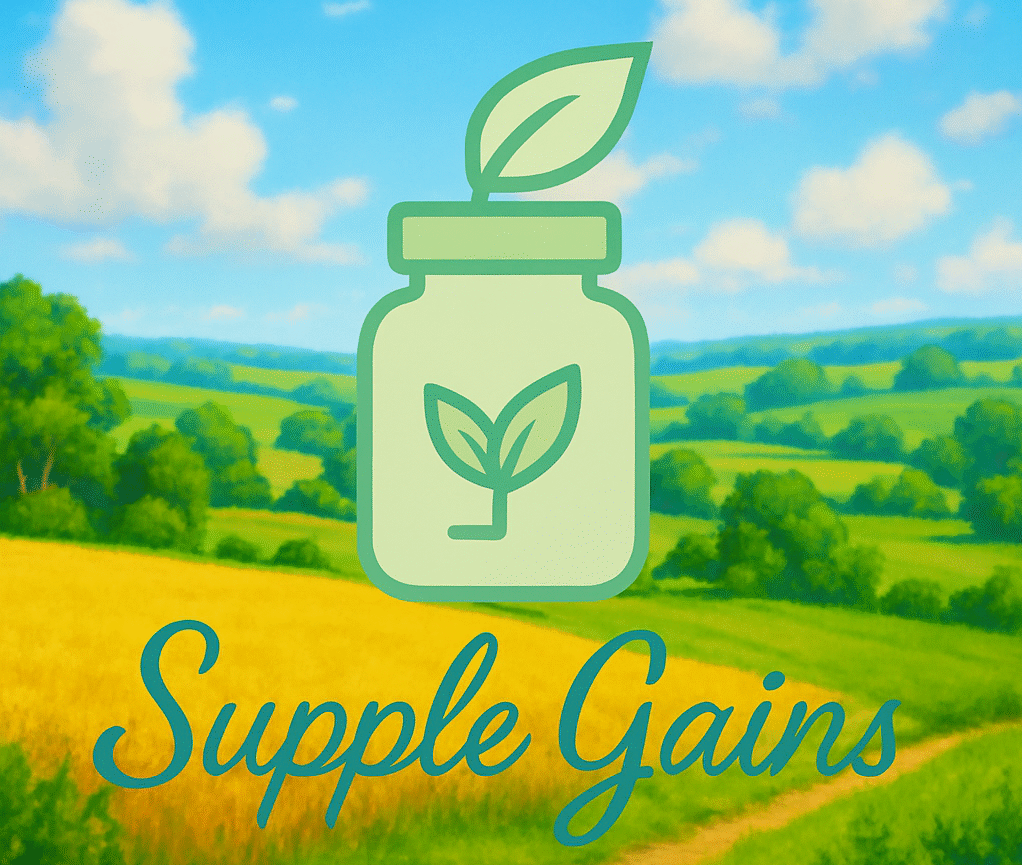A plantbased diet comes with a bunch of health perks, but there are some nutrients that can sneak under the radar if you aren’t paying attention. I’ve learned that being aware of key vitamins and minerals really makes a difference in how you feel every day. With so much info floating around, figuring out what matters for your own nutrition can feel overwhelming. So, I’ve gathered the essentials you’ll want to focus on as a plantbased eater; here are some simple ways to pack those nutrients into your meals.

Why Certain Nutrients Matter More on a PlantBased Diet
A plantbased diet supplies plenty of fiber, antioxidants, and healthy carbs. But cutting out animal products means a few vitamins and minerals get a bit harder to find. Some nutrients, like vitamin B12, iron, calcium, vitamin D, omega3s, zinc, and iodine, are found mostly in foods like meat, eggs, and dairy. While plants have their own powerhouse nutrients, it’s just a little trickier for your body to absorb certain vitamins and minerals from plantbased sources.
Your energy, mood, immune system, and even bone health can depend on topping up these essentials, especially if you’re vegan or avoid most animal foods. Skipping out on them might not show effects overnight. Over time, though, you’ll notice changes in your energy and overall health, making it worth paying attention even if you feel fine now.
Key Vitamins and Minerals To Watch Out For
Here’s a rundown of the main nutrients that deserve extra attention when you’re eating plantbased. I’ll also share some of my favorite plantbased sources to make things as easy as possible.
- Vitamin B12: This vitamin keeps your nerves and blood cells healthy, and it’s mostly found in animal foods. A deficiency often sneaks up without obvious symptoms at first, which is why supplementing is so widely recommended.
- Iron: Iron is needed for energy and focus, but plant iron (nonheme iron) just isn’t as easy for your body to use as the heme iron in animal foods. Taking extra steps helps your body absorb more from plant sources.
- Calcium: Key for strong bones and teeth. Choosing to skip dairy means you’ll probably need some new goto sources for this mineral.
- Vitamin D: Your body uses this vitamin to boost mood, immune health, and help absorb calcium. Most of it comes from sun exposure or fortified foods rather than naturally occurring sources in plants.
- Omega3s: These healthy fats do wonders for your brain, eyes, and heart, and they can be tough to get without fish or eggs. Plants have a specific type called ALA that your body has to convert.
- Zinc: You need zinc for a strong immune system. Although it’s in plant foods, it doesn’t absorb quite as easily, so variety is key.
- Iodine: Supports your thyroid, which controls energy levels and metabolism. Most plant foods are a bit low in iodine, so finding reliable sources matters.
Staying aware of these makes it simpler to build a balanced plate every day. Tuning into your meals becomes a simple way to keep feeling your best.
How to Get These Nutrients on a PlantBased Diet
After some trial and error, I’ve picked up tips for making sure these vitamins and minerals show up in my meals. It’s less about strict tracking, more about variety and making smart choices. Let me share some easy swaps and habits that work in the real world.
Vitamin B12
B12fortified foods are your friend here. You’ll spot it in many plantmilks, breakfast cereals, and nutritional yeast, which honestly adds a tasty cheesy flavor to a lot of dishes. Most vegans, and many vegetarians, use a B12 supplement because reliable plant sources just don’t exist. I usually take a weekly supplement to make things simple. If you’re unsure about your levels, check in with your healthcare provider about testing B12 now and then.
Iron
Some tasty veganfriendly iron sources include lentils, beans, chickpeas, tofu, cashews, pumpkin seeds, quinoa, and dark leafy greens like spinach or kale. To help your body get the most from plantbased iron, pairing these foods with a source of vitamin C (like squeezing lemon on greens or adding bell peppers to salads) works pretty well. If you’re a tea or coffee fan, try enjoying those between meals since they can interfere with iron absorption.
Calcium
Dairy used to be the big source, but there are several calciumrich plant foods out there. Broccoli, bok choy, soybeans, tahini, almonds, and fortified plantmilks give you a decent amount. I like to check labels for “calcium carbonate” or “calcium citrate” added to plantbased drinks; this means you’re actually getting that extra calcium. A serving or two daily covers most people’s needs. Remember to mix it up and choose different sources.
Vitamin D
Getting enough sunlight can be tricky, especially if you work inside or live in a cloudy climate. Most people who avoid dairy go for fortified plantmilks or cereals. Supplements are super useful here, especially in seasons when you’re mostly inside. If you pick a vitamin D supplement, plantbased options usually feature D2, but some new ones have D3 from lichen. This version is veganfriendly and absorbs well. Spending breaks outside each day also helps boost your levels naturally.
Omega3 Fatty Acids
You’ll find these labeled as ALA, EPA, and DHA. Plants like flaxseeds, chia seeds, walnuts, and hemp seeds give you ALA. Your body changes ALA to EPA and DHA, though not very efficiently. Some people use algaebased omega3 supplements, which provide DHA/EPA directly with no fish involved. I sprinkle ground flaxseed into my oats or smoothies for an easy dose. Walnuts make a great snack, and hemp seeds are perfect for salads.
Zinc
Getting enough zinc helps keep your immune system working well. Chickpeas, lentils, beans, pumpkin seeds, cashews, and quinoa all have zinc. Eating a variety, and soaking or sprouting beans, grains, or seeds, can boost absorption since some plant foods have compounds that slow things down a bit. Try swapping in more seed and nut butters or sprinkling seeds over salads for a zinc boost.
Iodine
Salt with added iodine is an easy fix if you don’t eat seaweed or dairy. A little bit of nori, dulse, or kelp can add some iodine, but it’s easy to overdo, so balance is important. For many people, a pinch of iodized salt in daily cooking keeps things on track. Always check salt packaging—”sea salt” may not have iodine unless added.
Common Hurdles and How To Get Around Them
It’s not always smooth sailing when you’re focusing on plantbased nutrition. Here are a few things I’ve run into, plus what’s helped me manage in each case:
- Label Confusion: Some products look plantpowered but aren’t fortified with nutrients. Doublecheck for B12, calcium, and vitamin D on the label so you don’t miss out.
- Low Absorption: Compounds in some plants can make your body work harder to absorb minerals like iron, zinc, and calcium. Cooking, soaking, and sprouting beans, nuts, and grains lowers their impact and boosts how much you actually absorb from each meal.
- Seasonal Changes: In the winter or if you live somewhere cloudy, vitamin D can drop quickly. This is a good time to use supplements or fortified foods more often, so your body doesn’t run low.
- Eating Out: It’s sometimes tricky to figure out what’s in your meal or if you’re getting those key nutrients. Keeping a stash of nutritional yeast or a small supplement bottle with you can come in handy.
Smart Routines for PlantBased Nutrition
Since being plantbased means paying closer attention to nutrition, building a few easy routines into your week helps you avoid gaps without micromanaging every bite. Here are some simple routines to keep you steady:
- Stock up on a couple of fortified foods, like your favorite plantmilk or breakfast cereal.
- Add a spoonful of ground flaxseed or chia seeds to breakfast most days as a quick omega3 bump.
- Keep canned beans, lentils, and tahini handy for tossing together quick, iron and zincrich meals.
- Check labels at the store for B12, calcium, and vitamin D when buying new foods now and then.
- If supplements fit your routine, setting a recurring reminder on your phone works pretty well to build the habit.
- Get outside daily, even for a brief walk, to help your body make some vitamin D the natural way.
These small habits set you up for getting most of what you need without much fuss. Over time, you won’t need to think about them—they become second nature.
Frequently Asked Questions for PlantBased Eaters
I get a lot of questions from others who are thinking about switching to a plantbased diet or want to make sure they’re covering their nutrition bases. Here are a few of the main ones:
Question: Can you get enough protein without animal products?
Answer: Yes! Beans, tofu, tempeh, lentils, peas, edamame, quinoa, and peanuts offer plenty. If you eat a variety of these, you’ll cover all your amino acids.
Question: What happens if you get low on B12?
Answer: Low B12 can sneak up and bring fatigue, memory troubles, and even nerve issues. Since your body stores B12, it takes a while to notice problems. Taking supplements or eating fortified foods keeps you safe for the long run.
Question: Do I need to count everything I eat?
Answer: Tracking can be helpful at first, but most people learn to eat a varied plantbased diet after some practice. Building a few smart habits, like using fortified foods and supplements, takes care of the rest and lets you relax about numbers.
Question: What’s the best supplement to take?
Answer: B12 is the most important for vegans, and vitamin D is a good idea during winter or if you get little sun. Depending on your own health or doctor’s advice, you might also look into iodine or algaebased omega3 supplements. Check in with a healthcare professional if unsure.
Bringing PlantBased Nutrition Together
Enjoying a plantbased diet is all about balance, variety, and staying curious about where your nutrients come from. Checking in on nutrients like B12, iron, calcium, vitamin D, omega3s, zinc, and iodine is a smart way to keep feeling your best, both now and as you grow older. A little planning up front pays off with more energy, better focus, and peace of mind; you’ll enjoy all your favorite plantbased dishes with confidence.
